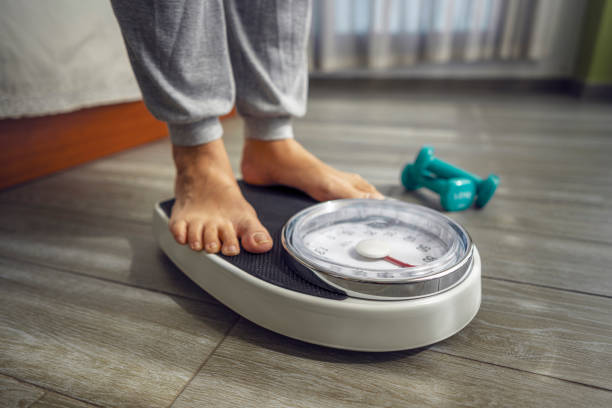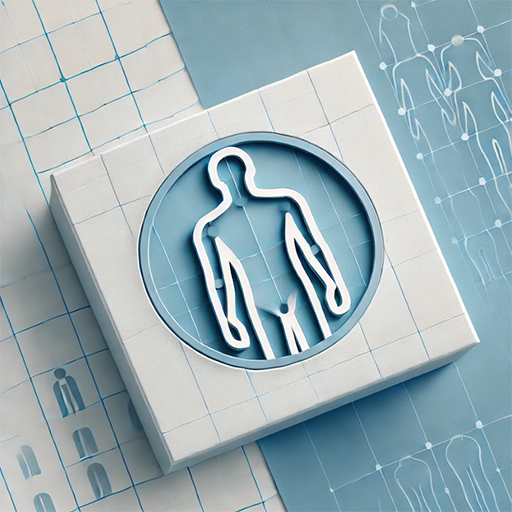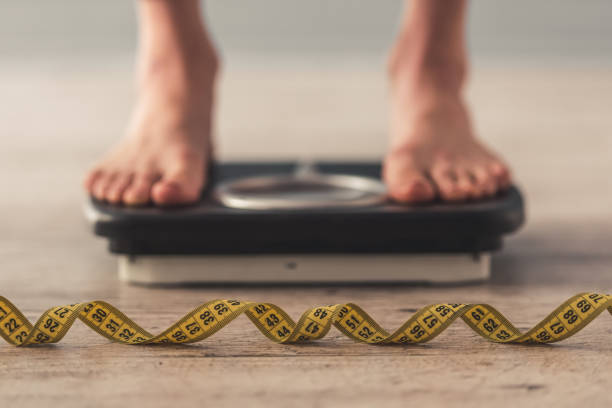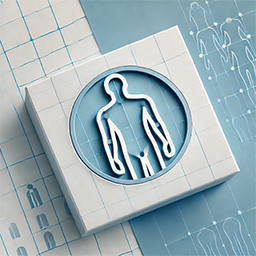Why Losing Weight Can Lead to Better Sleep and Improved Well-Being
Are you struggling to sleep well at night or feeling tired during the day? You’re not alone. Many people face sleep problems and low energy, but they don’t always understand the reason why. One often hidden cause is extra body weight. Carrying too much weight doesn’t just change your appearance—it can also affect your sleep quality and mood.
Losing weight can improve your sleep, help you feel more rested, and increase your overall well-being. When your body is healthier, you’re more likely to enjoy deeper sleep and wake up feeling energized. This can lead to brighter, more productive days.
In this article, we’ll explore how losing weight can improve your sleep and help you feel healthier overall. You’ll discover why losing weight is important for your body and mind, and how it can increase your energy and lift your mood. Plus, we’ll share easy and practical tips to guide you on your path to a happier, healthier life.
How Weight Affects Sleep Quality
The Link Between Excess Weight and Sleep Problems
Carrying extra body weight can increase your chances of having sleep disorders like obstructive sleep apnea (OSA). OSA is a condition where your breathing repeatedly stops and starts during sleep. This disrupts your rest and can leave you feeling tired and sleepy during the day.
The American Sleep Association says that about 80% of people with obstructive sleep apnea (OSA) are overweight or obese. This clearly shows a strong connection between extra weight and poor sleep quality.
How Fat Around the Neck Impacts Breathing
Fat buildup around your neck and throat can block your airways, making it harder to breathe while you sleep. This blockage often leads to loud snoring and causes you to wake up many times during the night. As a result, your sleep becomes less restful and less refreshing.
Because of this, your body misses out on the deep, restful sleep it needs. This leaves you feeling tired, drained, and less able to focus the next day.

Benefits of Losing Weight for Sleep Improvement
1. Reduces Sleep Apnea and Snoring
Losing weight can reduce the fat around your airway, making it easier to breathe and lessening the severity of sleep apnea symptoms. This can also help lower snoring, so both you and the people around you can enjoy better, more restful sleep.
Research shows that losing weight even just 10% of your body can greatly improve your breathing and help you sleep better at night. This small change can make a big difference in how well you rest and feel each day.
2. Enhances Sleep Duration and Quality
Losing weight can help you sleep longer and improve how well you rest. When your body is healthier, it’s easier to reach deep sleep—the stage where your body and mind repair and recharge for the day ahead.
With better sleep, you’re more likely to wake up feeling refreshed, alert, and ready to face the day with focus and energy.
3. Balances Hormones That Regulate Sleep
Your body weight affects important hormones like leptin and ghrelin. These hormones control when you feel hungry or full, but they also play a role in how well you sleep. Losing weight can help balance these hormones, improving both your appetite and your sleep quality.
This helps improve your sleep patterns and makes it easier to control your hunger and appetite throughout the day.
How Better Sleep Boosts Overall Well-Being
Improved Mood and Mental Health
Getting good quality sleep is important for keeping your emotions steady and balanced. When you don’t sleep well, you may feel more stressed, anxious, or even sad. Losing weight can help improve your sleep, which often leads to a better mood and stronger mental health.
Many people find that as their sleep and overall health get better, they feel calmer, more focused, and happier in their daily lives.
Increased Energy and Productivity
Getting good quality sleep gives your body the chance to heal and recharge every night. When your sleep gets better, your energy levels increase too. This extra energy helps you stay focused, think clearly, and accomplish more throughout the day.
With better rest, you will feel more alert, energized, and ready to take on daily tasks with greater ease and confidence.
Stronger Immune System
Sleep plays a key role in keeping your immune system strong and healthy. When you get enough good sleep, your body can better fight off colds, infections, and other illnesses. Losing weight also helps by reducing inflammation, which supports and boosts your immune health.
Together, losing weight and getting quality sleep help your body stay healthier and stronger. This combination boosts your defenses and keeps you better protected against illness.

Secondary Benefits of Weight Loss for Well-Being
Reduced Risk of Chronic Diseases
Losing weight can reduce your risk of serious health issues like heart disease, diabetes, and high blood pressure. These health problems are often linked to poor sleep, so managing your weight can help improve both your sleep and overall health.
Maintaining a healthy weight doesn’t just improve your sleep—it also helps you live a longer and healthier life. When your body is in better shape, it’s easier to rest well, stay active, and avoid long-term health problems.
Boosted Confidence and Self-Esteem
Reaching your weight loss goals can improve how you see yourself and give your confidence a real lift. When you feel healthier and notice positive changes in your body, it often leads to feeling proud of your progress and the smart choices you’ve made. This boost in self-esteem can motivate you to keep up your healthy habits.
This positive change can keep you motivated to stick with your healthy habits. As your confidence grows, you may find it easier to enjoy daily activities and feel more satisfied with your progress. Over time, this can lead to a happier, more confident life.
Practical Tips to Lose Weight and Improve Sleep
Focus on a Balanced Diet
Eat whole foods that are rich in fiber, like fruits, vegetables, and whole grains. These help you feel full longer and support better digestion. Add lean proteins such as chicken, fish, eggs, and beans to build and repair your muscles. Don’t forget healthy fats from foods like nuts, seeds, and olive oil—they help your body absorb vitamins and keep your heart strong.
Try to cut back on sugary snacks and processed foods, as they can make it harder to fall and stay asleep. These foods may also lead to weight gain, which can affect your sleep quality. Make sure to drink enough water during the day to stay hydrated. However, avoid drinks with caffeine, like coffee, soda, or energy drinks, in the late afternoon or evening. This will help your body relax and get ready for a good night’s sleep.
Get Regular Exercise
Try to get at least 150 minutes of moderate exercise each week to support weight loss and better sleep. Simple activities like brisk walking, swimming, biking, or yoga can help you burn calories and relax your body. These exercises also make it easier to fall asleep and stay asleep through the night. Staying active can boost your mood, reduce stress, and help you feel more energized during the day.
Just be sure to avoid intense workouts right before bedtime, as they can make it harder for your body to wind down. Vigorous activity late in the evening may raise your heart rate and energy levels, which can interfere with falling asleep. Instead, try calming exercises earlier in the day to support better rest at night.
Establish a Consistent Sleep Routine
Try to go to bed and wake up at the same time every day, even on weekends. Sticking to a set schedule helps your body build a steady sleep rhythm. Develop a calming routine before sleep, such as reading a book, listening to soft music, or practicing meditation. These habits signal your body that it’s time to relax and get ready for rest.
Make sure your bedroom is cool, dark, and quiet to create the best environment for restful sleep. Use blackout curtains to block outside light, and try earplugs or a white noise machine to reduce noise. Set the room temperature to a comfortable level, as a cooler room can help your body fall asleep faster and stay asleep longer.
Manage Stress Effectively
Try using mindfulness, deep breathing exercises, or journaling to help lower stress levels. These simple habits can calm your mind and relax your body. When stress goes on for too long, it may lead to weight gain and poor sleep. Finding healthy ways to manage stress can improve your mood, help you sleep better, and support your overall health.
Finding healthy ways to relax and unwind is very important for both your body and mind. Taking time to rest helps reduce stress, lowers your heart rate, and improves your mood. When you regularly practice relaxation, your body can recover better, and your mind feels clearer. This balance supports better sleep and overall health.
Seek Professional Help If Needed
If you think you may have sleep apnea or another sleep problem, it’s important to speak with a healthcare provider. They can help diagnose the issue and recommend the best treatment options to improve your sleep and health. Getting professional help can make a big difference in how well you rest.
For weight loss, registered dietitians and fitness trainers can design personalized plans tailored to your needs. These experts help you reach your goals safely and effectively by providing guidance on healthy eating and exercise habits. Working with professionals can boost your success and keep you motivated.

How Losing Weight and Sleeping Better Create a Positive Cycle
Losing weight can help you sleep better, and getting good sleep makes it easier to keep a healthy weight. This positive cycle can increase your energy, improve your mood, and raise your overall quality of life. As you notice these changes, you’ll feel more motivated to stick with healthy habits for the long run.
Conclusion: Take the First Step Toward Better Sleep and Well-Being Today
Losing weight is more than just improving your appearance—it’s about feeling healthier and happier too. Better sleep quality can change your health, lift your mood, and boost your energy every day. By making smart lifestyle choices and paying attention to both your weight and sleep, you can discover a happier, healthier version of yourself.
Ready to begin your journey to better health? Share your weight loss goals or sleep experiences in the comments below. Together, we can support and encourage each other to reach a healthier, happier life.



